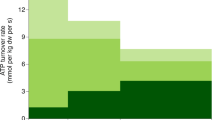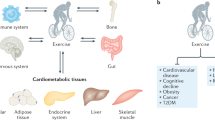Abstract
Introduction.—Muscular exercise is a subject in which most people are interested. It is fortunate therefore that, in this direction, physiology has made greater progress into the intimate working of the body than perhaps in any other. The means by which bodily movements are carried out is muscle. Muscle is the red meat. There are three kinds of muscles: the voluntary muscle of the trunk and limbs, governed- or at any rate governable-by the conscious will of the individual; the involuntary muscle of the bloodvessels, of the alimentary and excretory, the so-called vegetative, system; and the cardiac or heart muscle, the muscle which pumps the blood round the body.
This is a preview of subscription content, access via your institution
Access options
Subscribe to this journal
Receive 51 print issues and online access
$199.00 per year
only $3.90 per issue
Buy this article
- Purchase on Springer Link
- Instant access to full article PDF
Prices may be subject to local taxes which are calculated during checkout
Similar content being viewed by others
Rights and permissions
About this article
Cite this article
HILL, A. Muscular Exercise1. Nature 112, 77–84 (1923). https://doi.org/10.1038/112077a0
Issue Date:
DOI: https://doi.org/10.1038/112077a0
This article is cited by
-
Wissenschaftliche und technische Sammelreferate
Kolloid-Zeitschrift (1933)
Comments
By submitting a comment you agree to abide by our Terms and Community Guidelines. If you find something abusive or that does not comply with our terms or guidelines please flag it as inappropriate.



